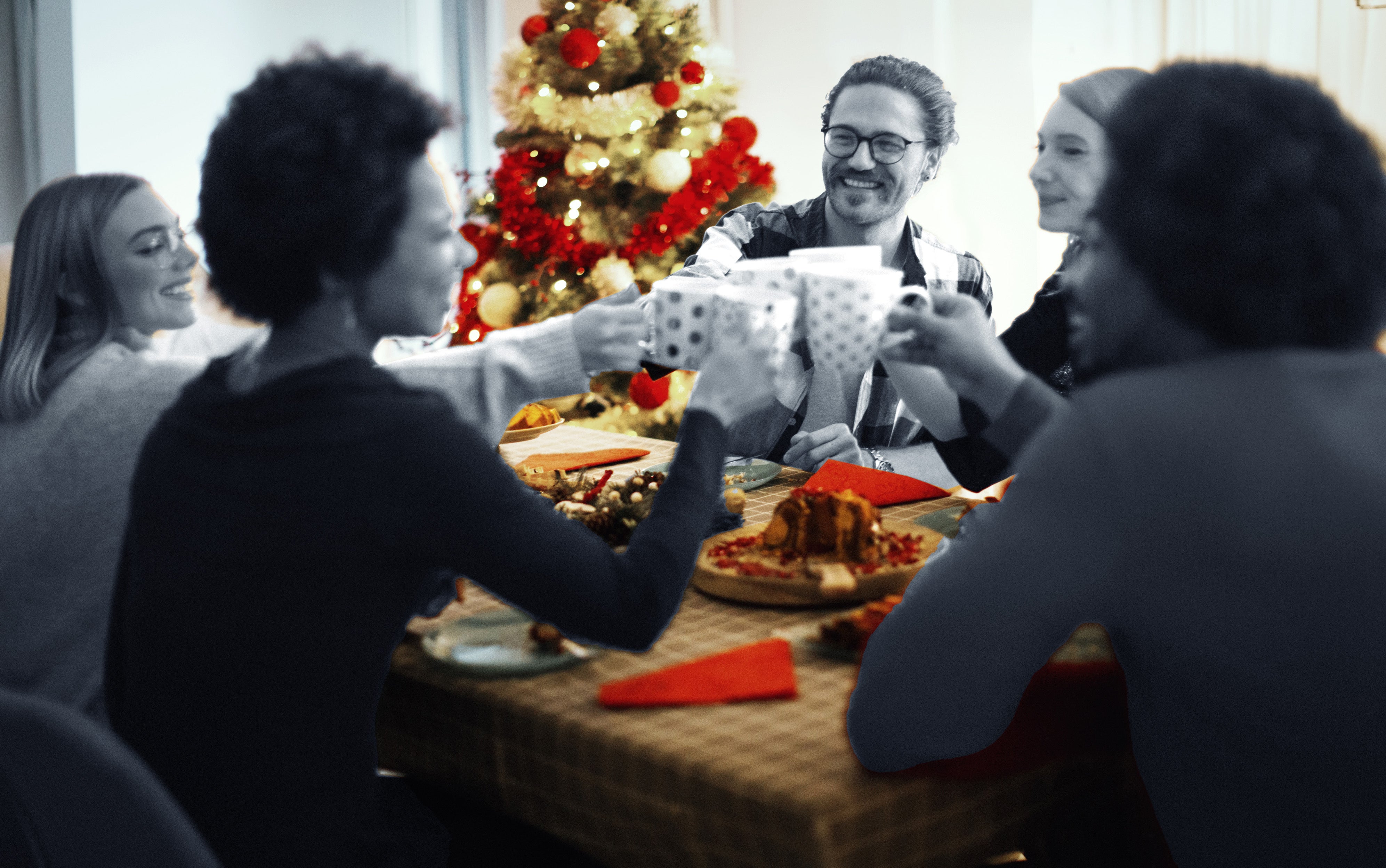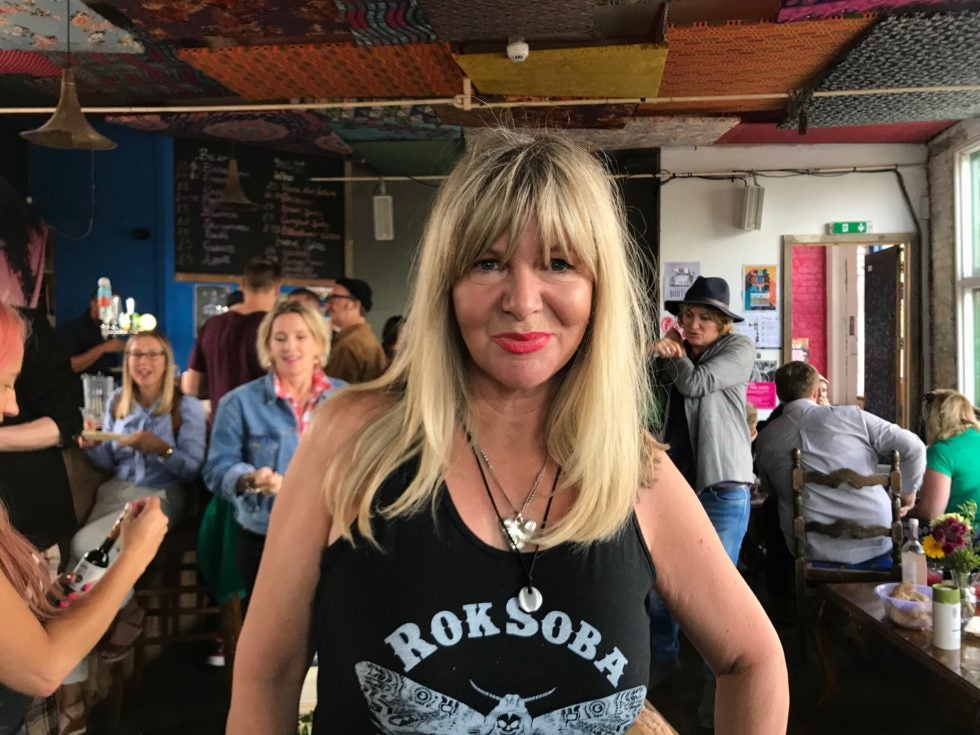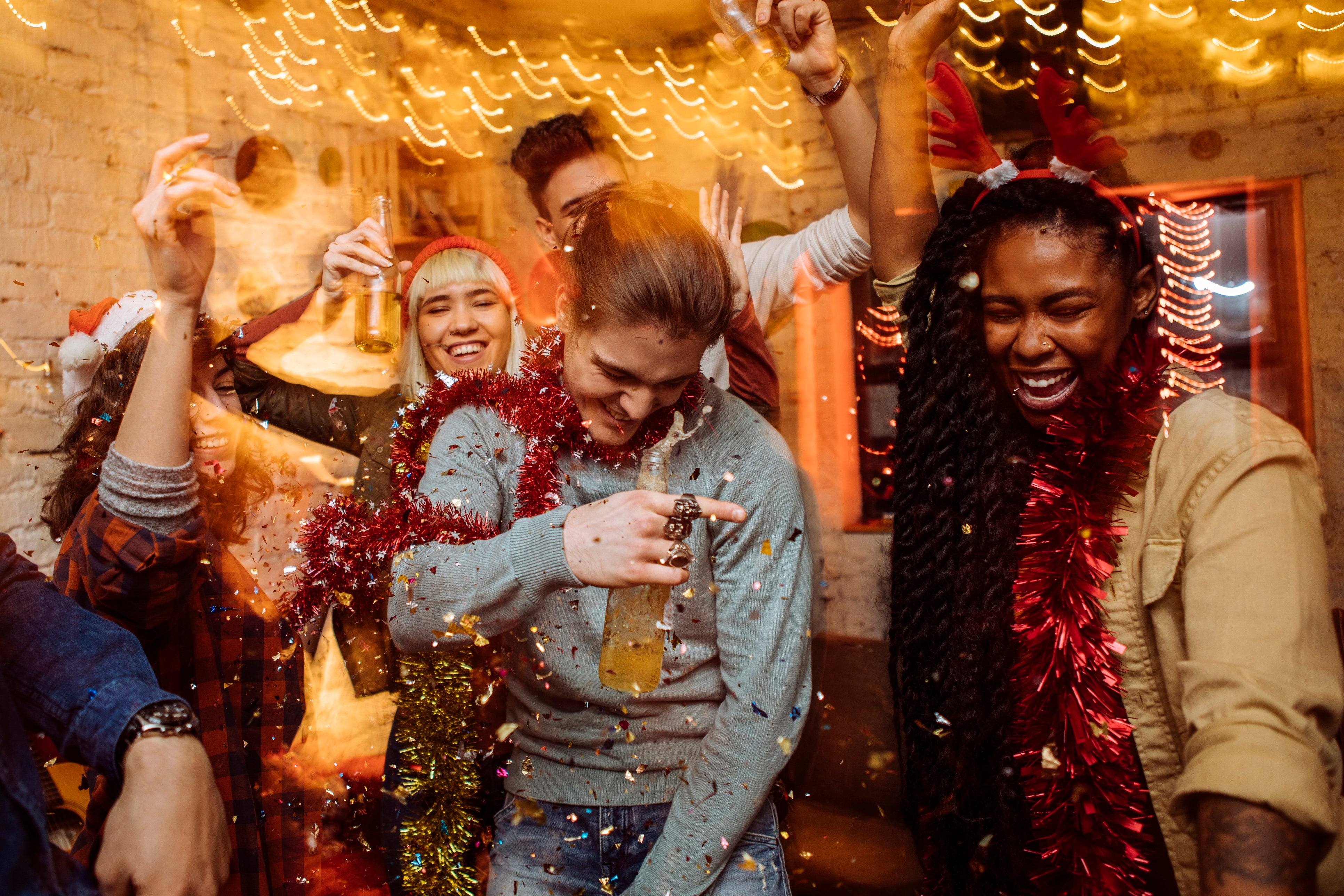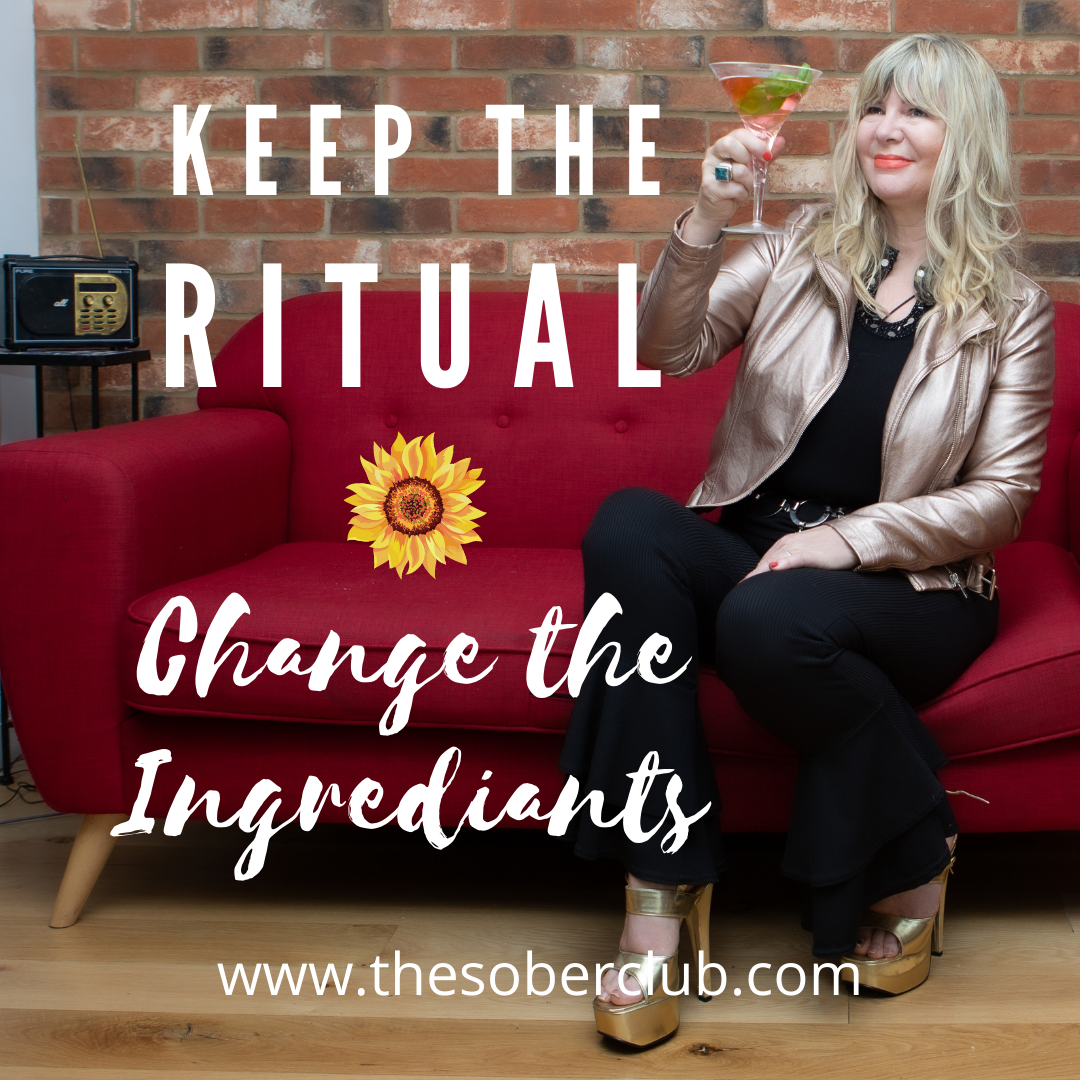It’s the most difficult time of the year if you’re teetotal
Many of us will be having a very merry Christmas... but what’s the festive party season like for those who don’t drink? David Barnett finds out


Paul Simpson vividly remembers the last time he had a drink. It was 17 October 1995, and he had just been told by his doctor to get to hospital immediately. On the way he had a bottle of Strongbow cider.
It was just after his 32nd birthday and he had been feeling unwell for a while. The crunch came when his father picked up some photographs for him from the developers, who said they thought there might be something wrong with the camera. No, said Paul’s father. He is that colour.
The hospital diagnosed severe liver dysfunction, which had given Paul his deathly yellow pallor. After three weeks in intensive care he was told in no uncertain terms that if he carried on drinking, his liver failure would mean his lungs would fill with blood and he would drown. It could happen anywhere, anytime. At home, at work, on a bus.
So he never had another drink, which was a surprise to those that knew him. Paul, a writer and editor from Brighton, had been a big drinker. A very big drinker. In fact, he says, the years running up to the spell in hospital – which he was not expected to survive – are a bit of a blur.
A huge film and pop culture fan, what drove Paul to get better was a determination to get out of hospital for the premiere of that year’s James Bond movie, Goldeneye. But a vow to try to live as normal a life as possible was not quite so easy, especially with Christmas approaching.
“It just wasn’t deemed socially acceptable not to drink,” says Paul. “I would go out and I’d drink soft drinks, and there would be people literally trying to put alcohol in my drink. They just couldn’t understand why I wouldn’t want to drink.
“I would be the odd one out, sitting in a corner with a Kaliber non-alcoholic beer, and this was really before they knew how to make Kaliber taste nice.”

According to the charity Drinkaware, which conducted research prior to the pandemic, the festive season is a time of huge pressure for non-drinkers. They said that 29 per cent of respondents found pressure to drink on New Year’s Eve, and one in five were cajoled to have a drink on Christmas Day.
Shān Nicholas, Drinkaware’s interim chief executive, says: “We know from Drinkaware research that people can feel pressured to drink over the festive period which can be difficult for those who don’t want to. If you’re organising a celebration this Christmas, think about how you can avoid making alcohol the focus of your festivities, ensure there are alcohol free alternatives available and never make it an expectation that people should drink.”
She adds that this pressure can add to the stress that some of us may feel around the festive season or even lead to us avoiding interacting with our friends and loved ones. In fact the same research found that more than one in 10 (13 per cent) UK drinkers admit they avoid social occasions in the festive season because of the pressure to drink alcohol.
So if you don’t drink, or are considering giving up, just how will you survive Christmas with friends, family and colleagues who like a tipple?
Research carried out by Drinkaware in October this year to understand more about how drinking habits can impact the workplace found that of the 14 per cent of workers who felt an expectation to drink alcohol at employer-organised events, a third (32 per cent) stayed away as a result.
According to Paul, things are much better now for non-drinkers who wish to socialise than they were in the hedonistic days of the 1990s.
“Now, almost every pub has a range of non-alcoholic drinks, and they are perfectly drinkable,” he says. “My wife and I used to go to a Sunday night quiz at a pub and they actually asked me what the best non-alcoholic drinks were for them to get in. I’d recommend something and they’d get it in on the Monday, and by the time we went back the following weekend they’d sold out because other people were drinking it because it was nice.
“So there is a complete social turnaround there on what’s on offer in pubs and the acceptability of not drinking. My daughter is at university and she says there’s no stigma at all about people going out and just deciding not to drink alcohol. So I think things have changed considerably for the better since I stopped drinking.”

But Christmas is still an especially tough time for the non-drinker, especially the newly teetotal, to navigate. Any Covid restrictions in the pipeline notwithstanding, there are still pubs, parties and family gatherings to attend. And not everyone is completely sympathetic to the non-drinker.
Janey Lee Grace is a radio presenter – you’ll often find her on BBC Radio 2’s Steve Wright in the Afternoon show – and the founder of the Sober Club, which includes a Facebook community, a podcast, and has led Janey to give a TEDx Talk. She stopped drinking in 2018 after, as she says, waking up at 3am hating herself for drinking too much, until what she calls “the wine witch” came calling again by 6pm later that day.
What makes most people not understand those who decide not to drink is a misconception that there are only two types of drinkers, she says: those who have hit rock bottom and for whom alcohol is a real, possibly life-threatening problem, and those who are considered to just “enjoy a drink” and have it completely under control.
“That’s absolutely not true,” says Janey. “It’s a much wider spectrum, and there’s something called the grey area, and the majority of people are somewhere along that spectrum.
“If you were to ask most people who drink when they have a hangover if they’d like to drink less they’d almost all say yes.
“The reality is that a huge number of people who drink are not happy about the amount they drink, but they’re caught in the alcohol trap, and it is a trap because it’s everywhere, it’s the glue that sticks society together, and especially at Christmas when it’s glamourised and it’s assumed you can’t celebrate without booze.”

Janey also has a problem with our use of the word “drink” to automatically mean alcohol, which shows how embedded in our society drinking is. And, she says, one of the biggest hurdles for those who want to stop drinking is the belief that without booze, they won’t be any fun.
She says: “Actually, the opposite is true. There’s that saying with the anagram, ‘sober equals bores’, but it’s actually the opposite way around, because it’s drunk people who are actually really boring, not people who are sober.”
That’s something Paul Simpson can relate to. He says: “With the party season here, everyone thinks you have to drink to have a good time. But if it’s a good party with your friends and family, then you don’t need alcohol. You can be drunk on the atmosphere. So enjoying parties for me isn’t a problem any more.
“And I don’t have an issue with people drinking around me. But I do have a problem now with people being drunk. Because then often people get lairy and things get difficult. Before, I never noticed that and it never bothered me, but that’s probably because I was one of the people getting drunk and drifting into that area. At the time I’d say no, that isn’t the case, that’s not me, but from accounts I’ve been given since of what I was like when drunk, then it does seem to be true.”
So if you don’t drink, or are considering giving up, just how will you survive Christmas with friends, family and colleagues who like a tipple? Janey Lee Grace has done the research on this, and has the online community to prove it works.

She says: “It can be an awkward situation, especially if you haven’t given people the heads up. So I always say, make your decision that you’re not going to drink and make that completely non-negotiable. Don’t make the focus on what you’re not having, or that you’re giving something up, or sacrificing something. You’re not sacrificing anything at all.
Most bars and restaurants will have grown-up alcohol-free drinks now. It’s definitely changing. It’s not totally there yet
“Focus 100 per cent on what you’re gaining. Plan something fabulous for the morning after the party, even if it’s just a walk in the fresh air or a yoga class, because you’re going to be feeling great after a night of not drinking.”
“Before the event, text or call your family or friends and just tell them that you won’t be drinking on the night. Give whatever reason you want, lie if you want. Make a joke of it, say. ‘I’m not drinking so there’ll be more for you’. And you can say to them, ‘I’m not drinking, and the best thing you can do is give me your support and just not mention it at all on the night’.”
Setting all this up in advance stops any awkwardness when you arrive at a party and the host immediately tries to press an alcoholic drink on you, says Janey. And it also makes it harder for your resolve to weaken.
She says: “When you actually arrive at somewhere it's always the trickiest bit. So you arrive at the bar or you arrive at someone's house and instantly they go, ‘Oh would you like a drink’, and in this country somehow we think the word drink means alcohol. It's ridiculous.
“And at that point that's when most people stumble and go, ‘Oh well actually… I'm not actually… I'm not drinking…” And then before you know it someone says, ‘oh, don't be ridiculous, just have one’ and you're going to give in. So instead of floundering at all, literally rehearse this before you go out. The minute someone says, ‘would you like a drink?’ your answer is, ‘I'd love a drink, thank you. I'd like an alcohol-free beer, or sparkling water’, or whatever. Have that prepped in advance exactly what you're going to say.”
There will still be people who don’t understand, especially if you’ve previously been a drinker and don’t seem to have any particular reason for not drinking that people can wrap your head around. You’re not on medication, you’re not pregnant, it’s not yet Dry January… why wouldn’t you be having a drink at Christmas? And they’ll want to hear your reasons, possibly quite forcefully.

Janey says: “There will be people who will literally start shaming you, telling you not to be ridiculous, asking if you’ve got a problem. You just need to change the conversation. Just say, ‘oh, don’t worry about me’, and immediately ask about their holiday or work or whatever. It’s the same conversation you’d be having with a drink in your hand. I like to say: keep the ritual, change the ingredients.
“And this is important because there might be a part of you, when the champagne corks start popping and you’re with your cup of tea or orange juice, that starts you thinking, ‘well, this is rubbish, everyone else is having a great time’. And you’ll feel like you’ve made a sacrifice, that you’re a martyr. But don’t think of it like that. Keep the ritual. Have a drink. Have something lovely to drink in a glass. Just not alcohol.”
If you’re going to a pub or bar, Janey agrees with Paul that the brilliant news is that there are a huge range of non-alcoholic drinks available now that aren’t just lemonade or Coke.
She says: “Most bars and restaurants will have grown-up alcohol-free drinks now. It’s definitely changing. It’s not totally there yet, so my advice is to ring ahead to the venue, just like you would if you had special dietary requirements. Ask them what alcohol-free drinks they’ve got and if they say soda water and Coke, tell them that you don’t want their soft drinks because you’re not 12, and that you’re going to bring your own, and then you can have your discussion about corkage.”
Janey’s website thesoberclub.com is full of inspiring stories about people who have already tackled these awkward first outings as a non-drinker. She says: “We had lots of people who have been really worried about going out with friends or going out on work dos, especially at Christmas, but they’ve taken my tips and done that prep and they usually come back and post something on the site the next day saying, ‘Oh, my God, it was so easy, it wasn’t an issue. I went in with the right attitude and maybe one person challenged me, but it was more about them than it was about me. I danced and was fully present in the conversation and had a great time, and woke up feeling fantastic’.
“The thing to remember is that these people are your friends and they should accept and support you, not give you grief. Which is why it’s always best to be upfront and do everything in advance and basically tell yourself that this is your choice and it’s what you’re doing.”
For more details go to thesoberclub.com, and for information on drinking and alcohol, and to take an alcohol self-assessment, go to drinkaware.co.uk
Join our commenting forum
Join thought-provoking conversations, follow other Independent readers and see their replies
Comments



Bookmark popover
Removed from bookmarks